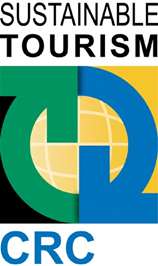Related Research Articles

The Johns Hopkins Center for Talented Youth (CTY) is a gifted education program for school-age children founded in 1979 by psychologist Julian Stanley at Johns Hopkins University. It was established as a research study into how academically advanced children learn and became the first program to identify academically talented students through above-grade-level testing and provide them with challenging learning opportunities. CTY offers summer, online, and family programs to students from around the world and has nearly 30,000 program enrollments annually. CTY is accredited for students in grades K to 12 by the Middle States Association of Colleges and Schools.
Intellectual giftedness is an intellectual ability significantly higher than average. It is a characteristic of children, variously defined, that motivates differences in school programming. It is thought to persist as a trait into adult life, with various consequences studied in longitudinal studies of giftedness over the last century. There is no generally agreed definition of giftedness for either children or adults, but most school placement decisions and most longitudinal studies over the course of individual lives have followed people with IQs in the top 2.5 percent of the population—that is, IQs above 130. Definitions of giftedness also vary across cultures.
Gifted education is a broad group of special practices, procedures, and theories used in the education of children who have been identified as gifted or talented.

Terence Chi-Shen Tao is an Australian-born mathematician. He is a professor of mathematics at the University of California, Los Angeles (UCLA), where he holds the James and Carol Collins chair. His research includes topics in harmonic analysis, partial differential equations, algebraic combinatorics, arithmetic combinatorics, geometric combinatorics, probability theory, compressed sensing and analytic number theory.
Julian Cecil Stanley was an American psychologist. He was an advocate of accelerated education for academically gifted children. He founded the Johns Hopkins University Center for Talented Youth (CTY), as well as a related research project, the Study of Mathematically Precocious Youth (SMPY), whose work has, since 1980, been supplemented by the Julian C. Stanley Study of Exceptional Talent (SET), which provides academic assistance to gifted children. Stanley was also widely known for his classic book, coauthored with Donald Campbell, on the design of educational and psychological research - Experimental and Quasi-experimental Designs for Research.
A selective school is a school that admits students on the basis of some sort of selection criteria, usually academic. The term may have different connotations in different systems and is the opposite of a comprehensive school, which accepts all students, regardless of aptitude.
Center for Talent Development (CTD), established in 1982, is a direct service and research center in the field of gifted education and talent development based at Northwestern University.
The Julian C. Stanley Study of Exceptional Talent (SET) is an outgrowth of the Study of Mathematically Precocious Youth (SMPY) at Johns Hopkins University. Founded in 1971 by Professor Julian Stanley, SMPY pioneered the concept of above-grade-level testing of middle school students, using the SAT to identify exceptionally talented mathematical reasoners, then offering rigorous academic programs for students who exhibit exceptional reasoning ability.

Academic acceleration is moving students through an educational program at a rate faster or at an age younger than is typical. Students who would benefit from acceleration do not necessarily need to be identified as gifted in a particular subject. Acceleration places them ahead of where they would be in the regular school curriculum. It has been described as a "fundamental need" for gifted students as it provides students with level-appropriate material. The practice occurs worldwide. The bulk of educational research on academic acceleration has been within the United States.
Michelle Ronksley-Pavia, born in Sheffield, England, is an emerging artist in Australia. She is also a researcher in education, writer and art teacher, particularly of gifted children. Ronksley-Pavia has participated in conferences and discussions at embassies, World, National and State conferences on the education of gifted and talented students and those termed twice-exceptional.

Sustainable Tourism Cooperative Research Centre (STCRC), headquartered in Gold Coast, Queensland, was an Australian Cooperative Research Centre established by the Australian Government's Cooperative Research Centers Program to establish a competitive and dynamic sustainable tourism industry in Australia. It ceased to operate on 30 June 2010.
Gifted pull-outs are an educational approach in which gifted students are removed from a heterogeneous (mixed-ability) classroom to spend a portion of their time with academic peers. Pull-outs tend to meet one to two hours per week. The students meet with a teacher to engage in enrichment or extension activities that may or may not be related to the curriculum being taught in the regular classroom. Pull-out teachers in some states are not required to have any formal background in gifted education.
The Gifted Education Research Resource Institute (GERI) is a multidimensional center dedicated to the study, discovery, and development of human potential. It was founded by John F. Feldhusen in 1977 and is situated in the College of Education, Purdue University in West Lafayette, Indiana. GERI's mission is holistic development of giftedness, creativity, and talent among individuals throughout their lifespan. This is accomplished through enrichment programs for talented youth, graduate programs for future scholars and leaders, professional development and coursework for educators, and ongoing research on the psychology of giftedness, creativity, and talent development. GERI faculty and staff work with P-12 educators in developing and improving services for gifted, creative, and talented children, as well as training school teachers and administrators in gifted education. In addition, GERI has developed several programs for talented youth. The Super Saturday program, a six-week enrichment program, was created in the spring of 1976. In 1977, GERI began Summer Residential Camps, aimed at providing a preview of college life to talented students.
Tracy L. Cross is an educational psychologist and developmental scientist. Since 2009 he has held the Jody and Layton Smith Professor of Psychology and Gifted Education endowed chair at The College of William & Mary, has been the executive director for William & Mary's Center for Gifted Education (CFGE), and founded the Institute for Research on the Suicide of Gifted Students in 2012. Previously he served as the George and Frances Ball Distinguished Professor of Psychology and Gifted Studies Ball State University (2000–2009), the founder and Executive Director of both the Center for Gifted Studies and Talent Development (2003–2009), and the Institute for Research on the Psychology of Gifted Students (2007–2009).

Jan Thomas is a veterinary scientist and career academic. Thomas is currently the sixth vice-chancellor of Massey University, New Zealand and the second woman to hold the position. Thomas is the first female veterinarian and only the second veterinarian to become a Vice-Chancellor in either Australia or New Zealand.
Ulrica Wilson is a mathematician specializing in the theory of noncommutative rings and in the combinatorics of matrices. She is an associate professor at Morehouse College, associate director of diversity and outreach at the Institute for Computational and Experimental Research in Mathematics (ICERM), and a former vice president of the National Association of Mathematicians.

Ann Curthoys, is an Australian historian and academic.
Lisa Maher is Professor and head of Viral Hepatitis Epidemiology, at the Kirby Institute for Infection and Immunity, at the University of New South Wales and was made Member of the Order of Australia in 2015. She was awarded an Elizabeth Blackburn Fellowship, in Public Health from the NHMRC, in 2014. She is a fellow of the Australian Academy of Health and Medical Sciences.
Terence J. G. Tracey is an American psychologist, author and researcher. He is professor emeritus of counseling and counseling psychology at Arizona State University. He is also a visiting professor at University of British Columbia. He has served in many administrative positions at Arizona State University including department head and associate dean. He is the former editor-in-chief of Journal of Counseling Psychology.
References
- ↑ Gross, Miraca Una Murdoch (1989). Children of exceptional intellectual potential: Their origin and development. (Volumes I and II) (PhD thesis). Purdue University. ProQuest 303810209.
- ↑ Gross, M. U. M. (2003). Exceptionally Gifted Children (2nd ed.). Routledge. ISBN 0-415-31490-9.
- ↑ Member of the Order of Australia